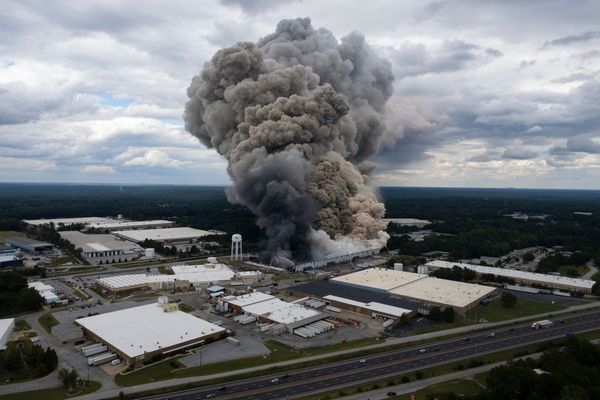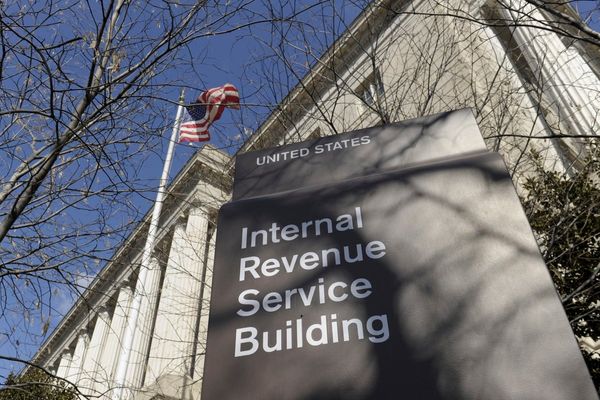
Less than five years from now, one million metric tons of electric car batteries will need new jobs.
Some will be good enough to power new vehicles, others will be reused in power storage and some will be too damaged to function as batteries again.
But where some see the risk of amassing a "paddock full of dead batteries," enterprising Australian recycling firms and start-ups are investigating ways to extract their valuable metals, reduce the need to mine new minerals, and turn a profit.

Researchers will investigate how local companies can retrieve value from damaged electric cars, and the Battery Stewardship Council is holding talks about a national EV battery recycling scheme.
Experts say any scheme would be complex and could face speed bumps but may ultimately prove a model example of the circular economy.
The latest study into batteries recovered from hybrid and electric cars will be undertaken at Edith Cowan University, in research overseen by the iMove co-operative research centre and launched with insurance giant iAG.
iMove managing director Ian Christensen says the company is driving the study to work out what value, if any, it can extract from electric vehicles written off in accidents.
"The battery is often the largest value component in the car," he said.
"As we get more and more EVs into the country, sooner or later we're going to build a big pile of exhausted batteries and we need to work out what to do with them."
But Mr Christensen says there are plenty of ways car batteries could have a second life.
Those no longer up to the demands of being used in an electric vehicle could be used for household or commercial energy storage, he says, while damaged batteries or those at the end of their lives could be ground down and "reprocessed".
But the case for recycling batteries is not guaranteed as "a battery made from virgin materials" is still cheaper to produce, meaning government regulations or subsidies could be necessary.
"We have to plan for this now because otherwise you start to build stockpiles of batteries that somebody has to be responsible for," Mr Christensen said.
"Everybody wants to try to identify the value opportunity before they're lumbered with a paddock full of dead batteries."

Association for the Battery Recycling Industry chief executive Katharine Hole says many local recycling firms are already trying to work out how to extract lithium, cobalt, nickel, manganese and profits from expired electric car batteries.
Car manufacturers are also recognising their value, she says, with many tying up local deals to ensure the batteries are not simply ditched.
"The manufacturers are contracting with recyclers and there's also lots of work happening in battery reuse and repurposing," she said.
"One of the hybrid car companies will even give (owners) a rebate if they return the battery to them, which is an interesting trend."
Recent deals include a partnership between Kia and Melbourne-based Infinitev that will see electric vehicle batteries tested to determine if they can be reused or whether they need to be recycled.
But challenges remain, including transporting the batteries safely, processing "black mass" that comes from shredded battery cells, and retrieving 100 per cent of the batteries no longer in use.
"From a pure capacity point of view, Australia is in a really good position and we're building capacity to be scalable," Ms Hole said.
"The challenge will be when recyclers can get enough commercial volume through and that's hard to predict because it will depend on things like a fuel standard and what happens in the energy space."

The number of new electric cars purchased in Australia has tripled this year, according to figures from the Federal Chamber of Automotive Industries.
The Electric Vehicle Council estimates there will be more than 180,000 on roads by the end of 2023.
Battery Stewardship Council chief executive Libby Chaplin says the industry still has time to plan how it will tackle the battery issue, but the deadline is looming.
"We have a little bit of time but not too much," she said.
"It is important that we're having the conversation so we can be ready as we have increasing volume in the coming years."
The council launched a discussion paper into EV battery recycling earlier this year and is now consulting with the FCAI and car manufacturers on future plans.
Workshops will discuss the best ways to overcome issues involved in collecting, reusing and recycling batteries.
"I am absolutely certain that reuse will play an important role but there is quite a bit of work to do there to make sure we have safety and quality standards in place," she said.
Whether the industry decides a national scheme is necessary or whether it can be handled by individual manufacturers will be determined as part of the process, but the clock is ticking as sales grow.







